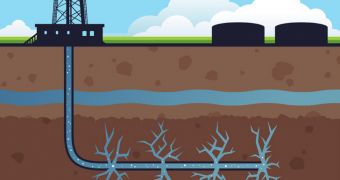This past Friday, the city of Los Angeles in the United States came a step closer to implementing a moratorium on hydraulic fracturing, otherwise known as fracking.
Thus, media reports say that city council members present at a session concerning this ban on fracking all voted in favor of the motion.
The moratorium motion must now reach the city attorney, whose job will be to piece together an ordinance intended to ban fracking and several other so-called well stimulation practices across the Los Angeles County's territory.
Once the ordinance is crafted, the council will have to vote on it for one last time and decide whether or not it is to be implemented.
The moratorium on hydraulic fracturing that the city of Los Angeles currently has in the works is meant to ban this practice until it is determined just how big of a threat to people and natural ecosystems fracking really is.
More precisely, Eco Watch tells us that the ban will give specialists time to assess the impact that hydraulic fracturing has on the drinkability of water that people living in Los Angeles County rely on.
Commenting on Los Angeles' taking steps towards becoming the largest city in the United States to have until now implemented a moratorium on fracking, Adam Scow with California’s Food & Water Watch, stated as follows:
“We congratulate the Los Angeles City Council for supporting the L.A. fracking moratorium motion, a strong step toward protecting the people of Los Angeles from severe health and environmental impacts.”
“We urge the city attorney to stand by the motion’s strong language and set a powerful and positive example for other communities and Gov. [Jerry] Brown, who should immediately enact a statewide moratorium to protect all Californians,” the current director of Food & Water Watch went on to say.
As reported on several occasions, hydraulic fracturing refers to injecting large amounts of water into wells into order to break up gas and oil deposits and thus make it possible to better exploit them.
The trouble is that the water used by people in the fracking industry is mixed with several chemical compounds. Consequently, there are many who claim that it threatens not only to pollute the environment, but to also have a negative impact on public health.
“We don’t know all of the chemicals oil companies are exposing us to when they frack in our neighborhoods, but we know enough to know we don’t want them in our air or in our water,” Liz Crosson with Los Angeles Waterkeeper says.

 14 DAY TRIAL //
14 DAY TRIAL //